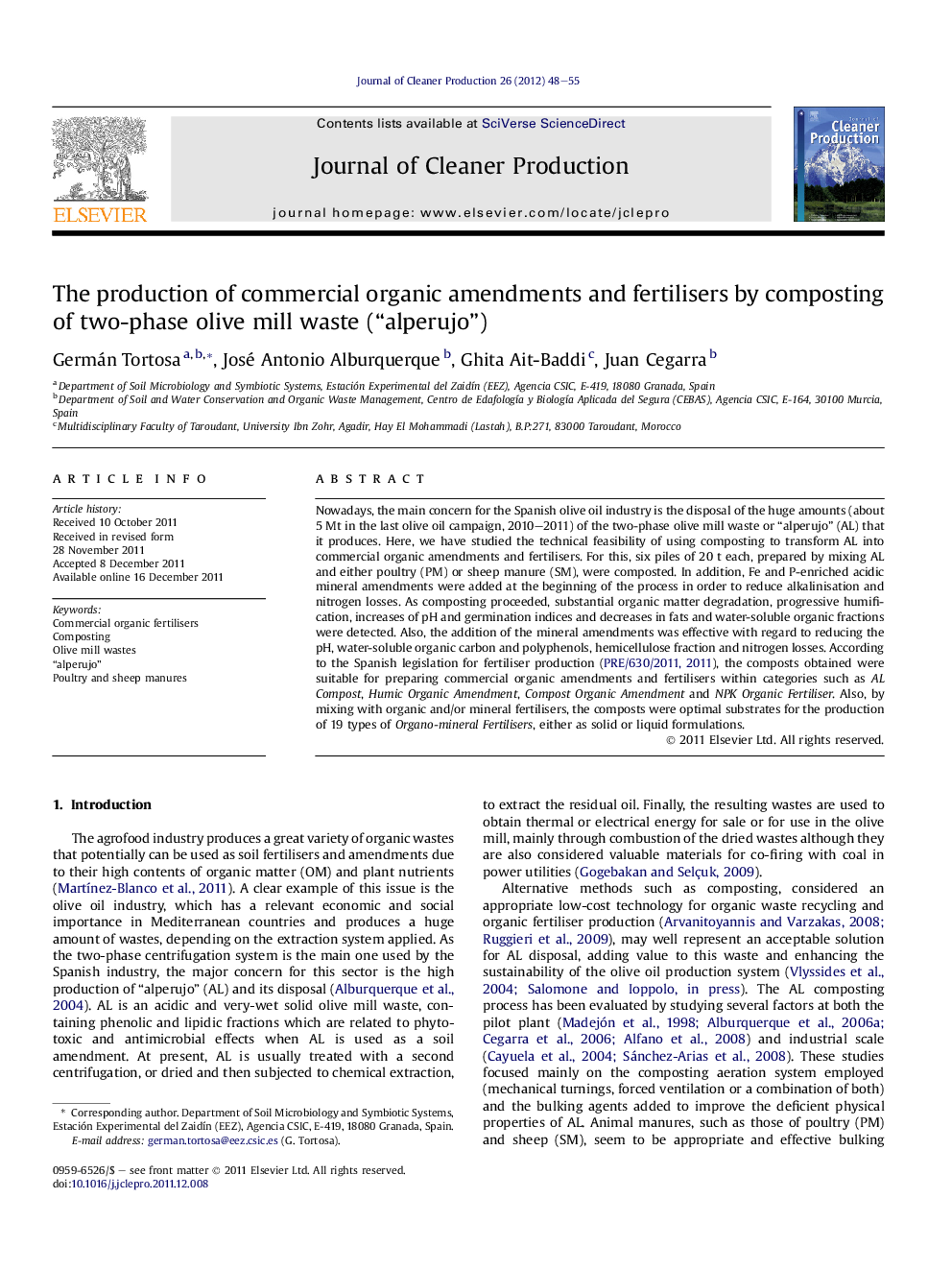| Article ID | Journal | Published Year | Pages | File Type |
|---|---|---|---|---|
| 1745786 | Journal of Cleaner Production | 2012 | 8 Pages |
Nowadays, the main concern for the Spanish olive oil industry is the disposal of the huge amounts (about 5 Mt in the last olive oil campaign, 2010–2011) of the two-phase olive mill waste or “alperujo” (AL) that it produces. Here, we have studied the technical feasibility of using composting to transform AL into commercial organic amendments and fertilisers. For this, six piles of 20 t each, prepared by mixing AL and either poultry (PM) or sheep manure (SM), were composted. In addition, Fe and P-enriched acidic mineral amendments were added at the beginning of the process in order to reduce alkalinisation and nitrogen losses. As composting proceeded, substantial organic matter degradation, progressive humification, increases of pH and germination indices and decreases in fats and water-soluble organic fractions were detected. Also, the addition of the mineral amendments was effective with regard to reducing the pH, water-soluble organic carbon and polyphenols, hemicellulose fraction and nitrogen losses. According to the Spanish legislation for fertiliser production (PRE/630/2011, 2011), the composts obtained were suitable for preparing commercial organic amendments and fertilisers within categories such as AL Compost, Humic Organic Amendment, Compost Organic Amendment and NPK Organic Fertiliser. Also, by mixing with organic and/or mineral fertilisers, the composts were optimal substrates for the production of 19 types of Organo-mineral Fertilisers, either as solid or liquid formulations.
